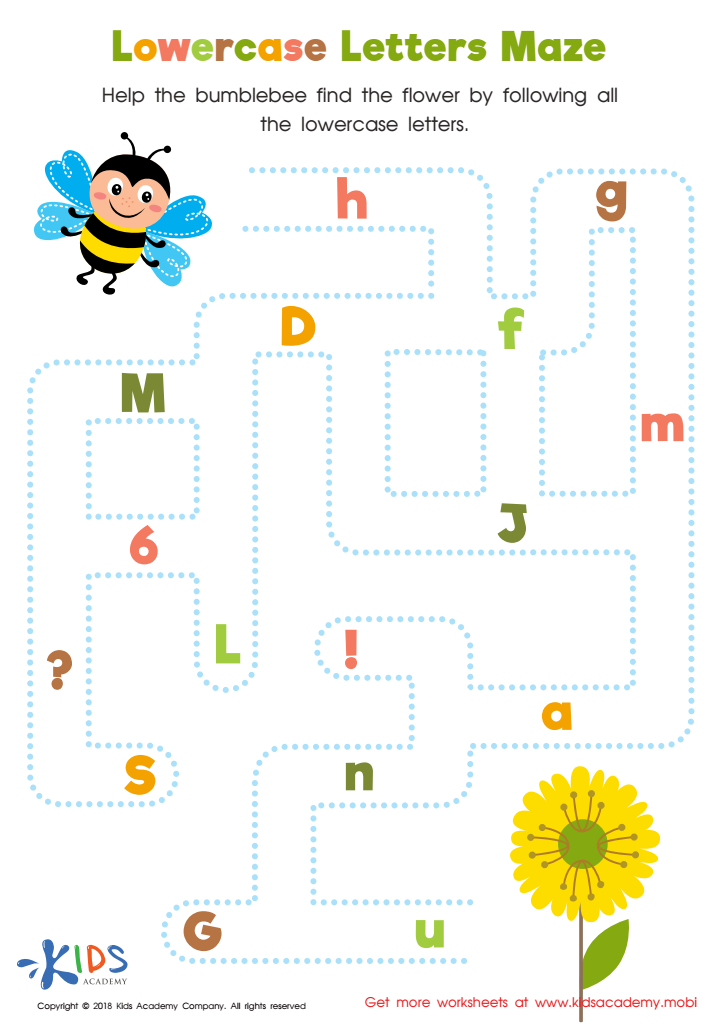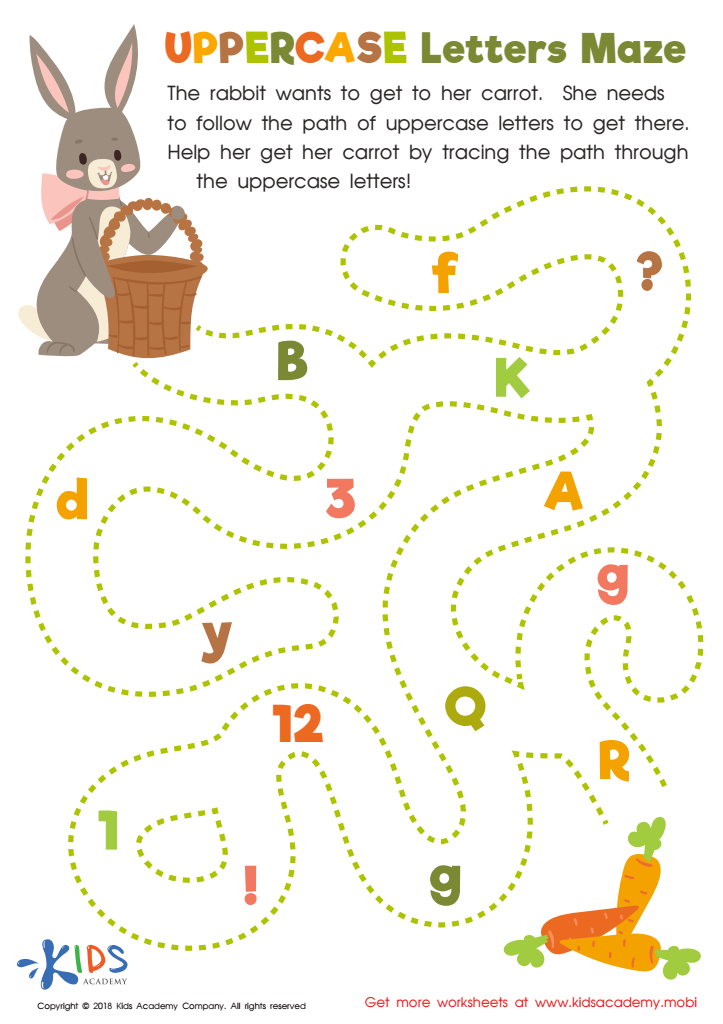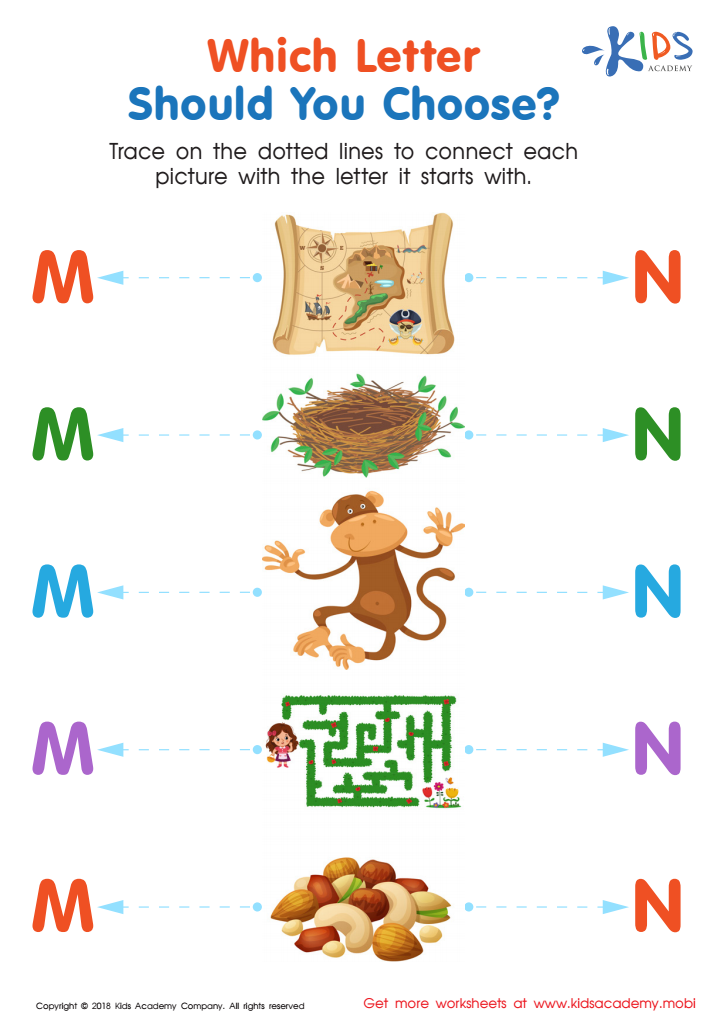Problem-Solving Skills Normal Upper & Lowercase Letters Worksheets for Ages 6-9
3 filtered results
-
From - To
Enhance your child's problem-solving skills with our engaging Normal Upper & Lowercase Letters Worksheets designed for ages 6-9. These worksheets provide interactive activities that challenge young learners to think critically and creatively as they familiarize themselves with the alphabet. Each page is thoughtfully crafted to help children recognize, differentiate, and apply uppercase and lowercase letters in various contexts. By integrating essential problem-solving tasks, these worksheets not only foster literacy development but also encourage skills such as logical reasoning and critical thinking. Perfect for home or classroom use, they offer a fun and educational experience that will boost your child's confidence in reading and writing!


Lowercase Letters Maze Worksheet


Uppercase Letters Maze Worksheet


Which Letter Should you Choose? Worksheet
Problem-solving skills are essential for children ages 6-9 as they lay the foundation for critical thinking and decision-making throughout life. Parents and teachers should prioritize these skills because they encourage children to approach challenges with confidence and creativity. At this age, children are naturally curious and eager to explore new ideas. By nurturing their problem-solving abilities, adults help them learn to analyze situations, develop strategies, and evaluate outcomes.
Effective problem-solving promotes resilience. When children encounter difficulties, learning to tackle problems head-on fosters a growth mindset. This means they realize that mistakes are opportunities for learning rather than failures. Additionally, strong problem-solving skills facilitate collaboration and communication as kids often work in teams to solve puzzles or complete tasks in the classroom. These experiences build social skills and teach the value of diverse perspectives.
Incorporating problem-solving activities into everyday experiences makes learning fun and engaging. Whether through games, hands-on projects, or real-life challenges, children become active participants in their learning process. By emphasizing problem-solving skills, parents and teachers equip children with the tools they need to navigate the complexities of life while fostering a lifelong love for learning. Thus, caring about these skills is vital for their overall development.
 Assign to My Students
Assign to My Students












